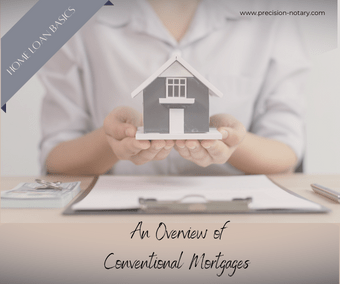A conventional mortgage is a type of home loan that is not backed by a government agency. It is often referred to as a “conventional loan.” This type of loan is one of the most popular types of mortgages and is available to many people who are looking to buy a home.
How Conventional Mortgages Work
A conventional mortgage works by lending money to a borrower to purchase a home. The loan is secured by the property and the lender has the right to foreclose on the home if the borrower defaults on the loan. The lender also receives the title to the property, which means that they have ownership rights until the loan is paid off.
The amount of money that a borrower can borrow depends on their credit score, income, and the value of the property they are purchasing. The loan is usually paid back over a period of 15 or 30 years, although other terms may be available.
Benefits of Conventional Mortgages
One of the biggest benefits of conventional mortgages is that they are available to a wide range of borrowers. They are often easier to qualify for than other types of loans, such as those backed by the Federal Housing Administration (FHA) or the Department of Veterans Affairs (VA). This is because conventional loans have more flexible credit score and income requirements.
Another benefit of conventional mortgages is that they offer more loan options. Borrowers can choose from a variety of loan types, including fixed-rate and adjustable-rate mortgages, and can select the term that best meets their needs.
Down Payments
Conventional mortgages typically require a down payment of at least 5% of the purchase price of the home. However, some lenders may require a higher down payment, depending on the borrower’s credit score and financial situation. Borrowers who make a higher down payment are usually seen as less risky by lenders and may be able to secure a lower interest rate on their loan.
Private Mortgage Insurance (PMI)
One downside of conventional mortgages is that they may require private mortgage insurance (PMI) if the down payment is less than 20% of the purchase price of the home. PMI is an insurance policy that protects the lender in case the borrower defaults on the loan. The cost of PMI is usually added to the monthly mortgage payment and can increase the overall cost of the loan.
Conclusion
Conventional mortgages are a popular type of home loan that offer many benefits to borrowers. They are available to a wide range of people, offer flexible loan options, and can be a good choice for those who have a good credit score and financial situation. However, conventional mortgages may require a higher down payment and may also require private mortgage insurance, which can increase the overall cost of the loan.
As with any type of loan, it is important to carefully consider all of your options and to work with a knowledgeable mortgage lender to find the best solution for your needs.
Linda Benningfield is a professional mobile notary, loan signing agent, and apostille facilitator living in the beautiful Pacific Northwest. Linda is also an independent associate for LegalShield / ID Shield providing affordable protection plans to individuals, families, and businesses.
Connect here: linda@precision-notary.com


Recent Comments